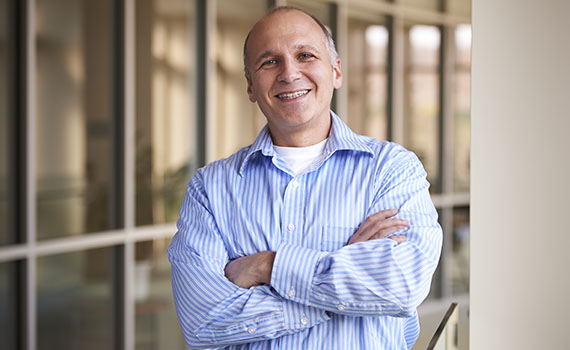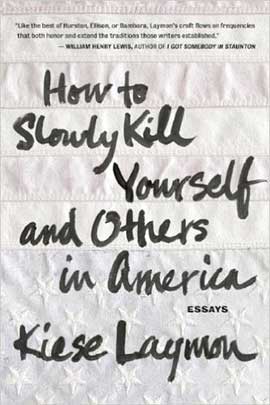
Professor Jeff Bary – photo by Andrew Daddio
(Editor’s note: the following commentary is from Professor on . Kiese Laymon, whose book was an integral part of the program, will be on campus on .)
In September 2014, ¸Ô±ľĘÓƵ students occupied the university’s administration building for 100 hours. They demanded a ¸Ô±ľĘÓƵ for All and offered a list of 21 points that they wanted the university to address in an attempt to improve the situation for students who felt marginalized because of race, gender identity, or socio-economic status.
In the spring of 2015, as the administration continued to address those 21 points, faculty and staff debated about whether or not we should scrap ¸Ô±ľĘÓƵ’s summer book program. Some feared that students didn’t read the book and that we only talked about it in some pseudo-meaningful way for 60 minutes during orientation. We were either missing a golden opportunity or doing something we shouldn’t be doing.
I am a believer in the golden opportunity. Discontinuing the program was especially disconcerting to me in the light of the ¸Ô±ľĘÓƵ for All movement. I remembered going down to the administration building and hearing first-year students speak — students who arrived on campus having just read Freedom Summer, which details the sacrifices that students were willing to make 50 years ago in the name of civil rights.
It was almost direct evidence of the impact that summer books can have on our students and on the ¸Ô±ľĘÓƵ culture. It argued for new ways to strengthen the program, increase student participation, extend the intellectual life of the book, and potentially reach a larger portion of our community.
As interim director of the First Year Seminar Program, I convened an ad hoc committee of like-minded — and maybe not so like-minded — faculty and staff who would be interested in considering what we could do to make the program more meaningful.
Based upon the committee’s work and open forums with faculty, staff, and students, we decided to invite all students to read the book. Instead of discussing it for an hour during orientation, we would develop an interdisciplinary series of events, providing formal opportunities to build a shared experience around the text.
We also significantly redesigned the process for selecting a book, including all faculty, staff, and students in the decision. The community voted on the final selection, which turned out to be Kiese Laymon’s book of essays, How to Slowly Kill Yourself and Others in America. 
This book is not easy. It’s not easy for the majority of our students, who are white, to read a book that was not written for them. They are normally the target audience. Would they take it as a challenge or dismiss it?
During a series of ¸Ô±ľĘÓƵ Conversations for first-year students during orientation, we covered many topics — presentations on ¸Ô±ľĘÓƵ history, issues of inclusion, and our summer reading. I led one of those conversations, and a student said, “You know, I chose to come to ¸Ô±ľĘÓƵ because I was going to fit in and everybody there was going to be a lot like me.” But he said it with a dawning realization that he should try to get out of his own little world and meet people that he’d never met before from places that he’d never visited. He needed to understand how life may be for others and how their experiences could enrich his own.
What will that realization mean to him and to his classmates 10 or 20 years from now? I came away from that conversation thinking, boy, these students were serious, and they did really hard work.
They will continue that work through a schedule of 17 book-related events, from poetry readings to dance performances to film screenings to scientific lectures — all dealing with issues of intergroup dialogue, the black experience in America, and how people who are not from a marginalized group contribute to this culture in which we find ourselves. We’re all part of this. We’re all in this together.
– , associate professor of .
Related links
¸Ô±ľĘÓƵ community reads